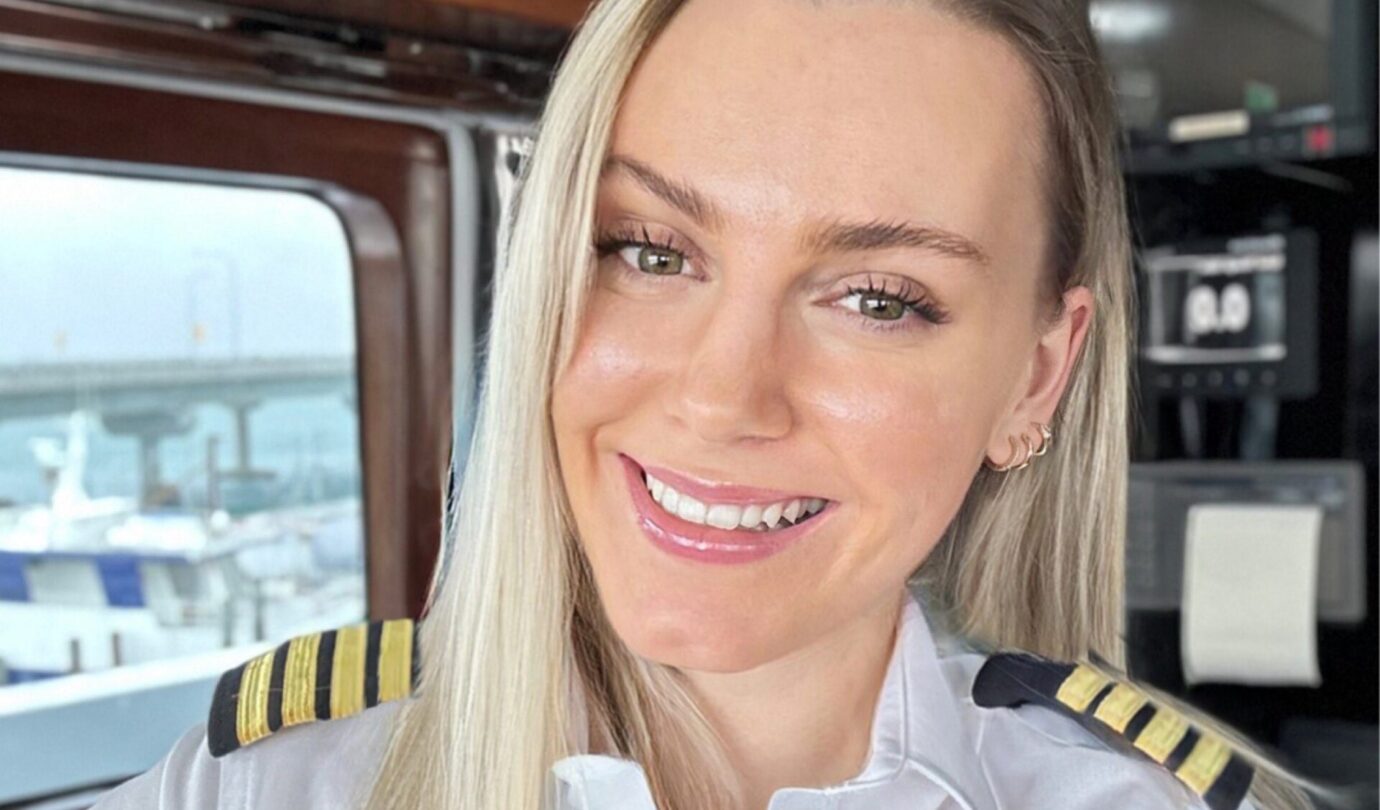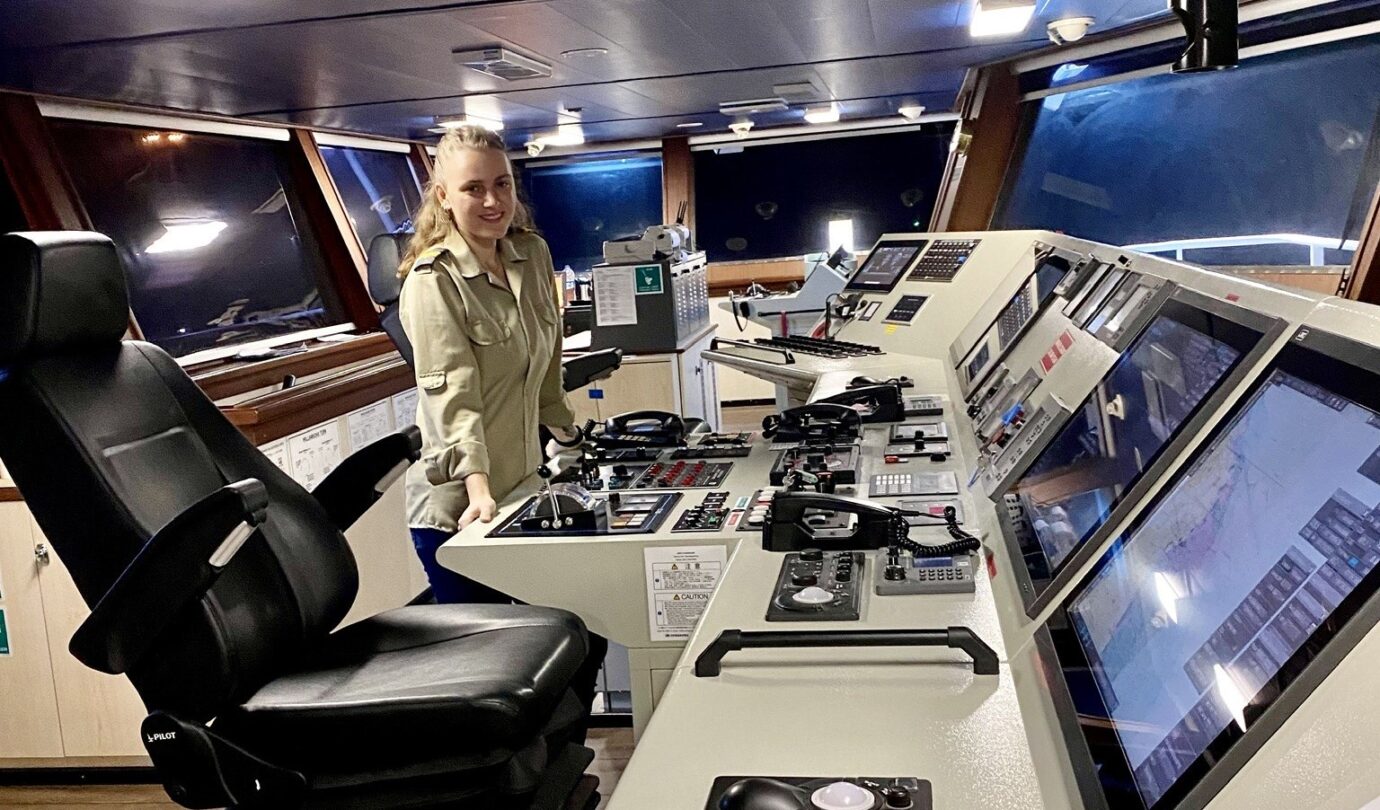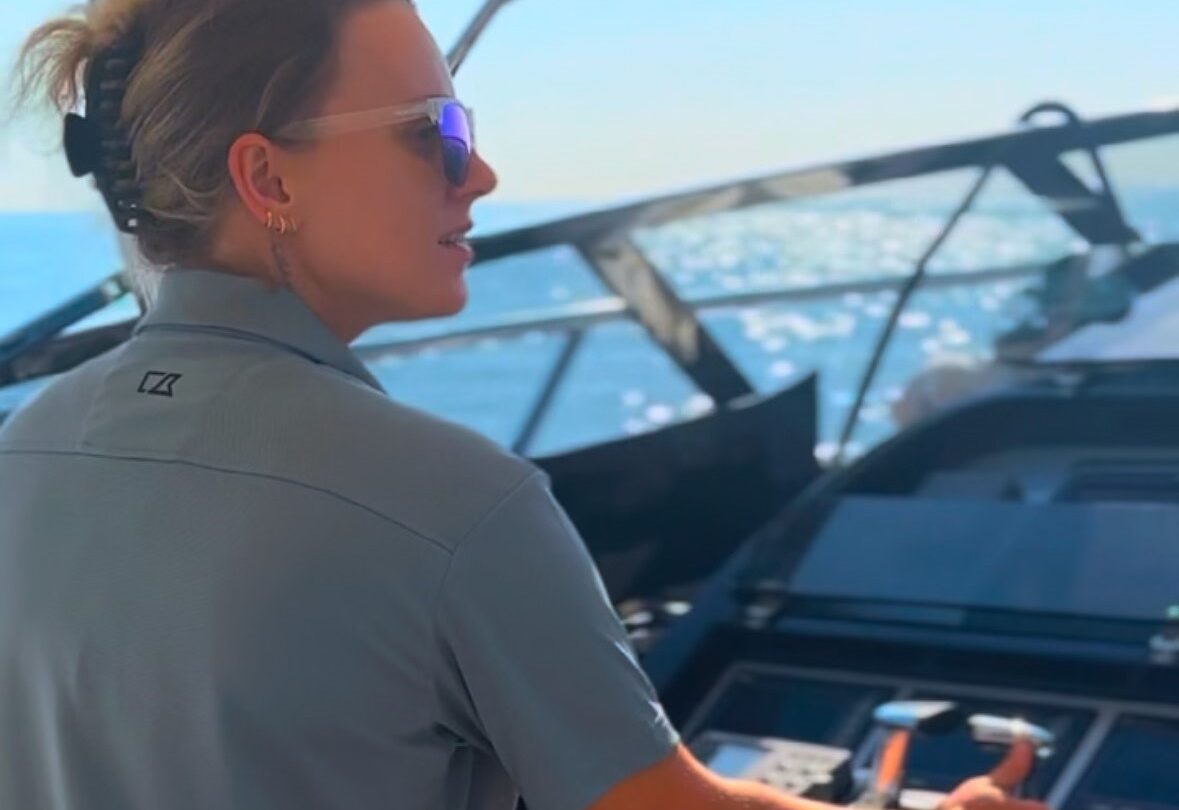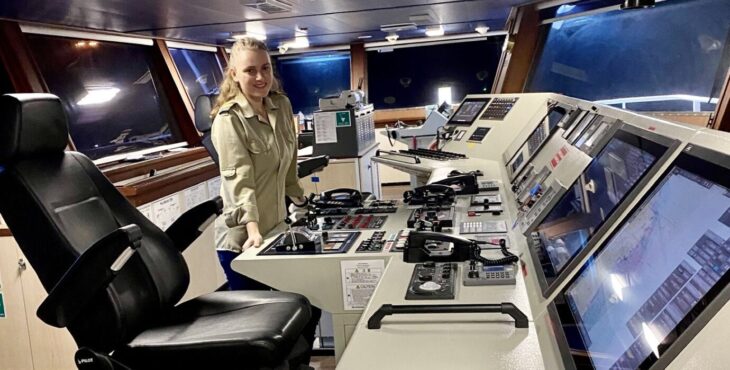Captain Leyla Serter talks to DN: “Dreams can come true with dedication and perseverance”
DN continues their interviews with female yachting professionals who took part in the first international forum for women in yachting in Turkey
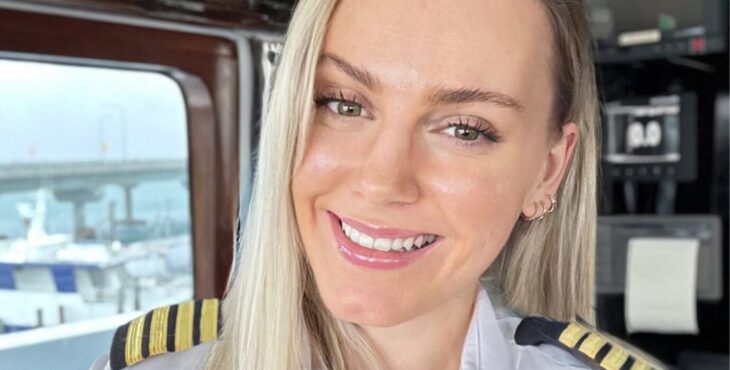
DN continues their interviews with female yachting professionals who took part in the first international forum for women in yachting in Turkey
Daily Nautica continues its interviews with the female yachting professionals who took part in the first International Conference for Women in Yachting in Turkey, and for which we were media sponsors. After interviewing captain Kelly Gordon, who moderated the event, today we are publishing our interview with one of the speakers, the young and determined captain, Leyla Serter.
Captain, you are only 25 and have already been to 35 countries. When did your passion for boating begin?
“Living near the coast of Samsun, I have always had a love of the water since I was a child. Although in my family there have never been any sailors, I have always been fascinated by the sea. This interest was made even stronger when I saw naval officers in white uniforms during a national holiday. That made me start dreaming of wearing a uniform like that someday too. I began my professional career at 18. When I found a maritime high school in my hometown with a captaincy programme, I jumped at the opportunity, and started working in the industry a lot sooner than many others my age.
Instead of going to university, I decided to start working right away, building up experience from the very beginning of my career.”
How much hard work, study and sacrifices did you have to make to make your dream come true?
“Making a dream like becoming a captain come true requires enormous sacrifice, studying and dedication. I started in the maritime high school, where I learned not just technical skills but also the discipline necessary for a difficult career at sea. Starting work at just 18 meant growing up quickly, taking on responsibilities that most kids my age didn’t know yet. This meant long hours of studying, practical training, and adapting to a continuously changing environment like that of the sea. I made a lot of sacrifices: I missed family celebrations, anniversaries and the comforts of home, working on board vessels in some of the remotest places on earth. In addition, as a woman in a male-dominated industry, I had to work twice as hard to prove my worth, not just to the others but sometimes, even to myself. But it was worth it. Those sacrifices shaped me. Hard work taught me resilience. Studying gave me the skills not only to make my dream come true, but to excel. This proves that dreams can come true with dedication and perseverance.”
During an interview, you spoke about the inequality faced by women and the challenges you had to overcome during training. Can you tell us more about this?
“Gender inequality has been one of the most significant challenges that I had to overcome while training, and at the beginning of my career. The maritime industry is traditionally dominated by men, and, as I entered this world, as a young woman, there were a number of challenges. During training, I was often met with scepticism in regard to my skills, just because I was a woman. Some doubted I would be able to handle the physical challenges or the responsibilities of leadership. On board, I often found myself isolated, as I was the only female crew member. Building up respect and trust in such an environment required a lot of strength and determination. What’s more, social expectations on what a woman should and shouldn’t do added even more pressure.”
What added value do you think female captains bring to a superyacht?
“I think that having a woman in command of a superyacht is a great added value for the industry. Leadership is based on skill, experience and dedication, but a female presence also brings a different perspective and approach, which can have a positive impact on both the crew and passengers. Women often excel in communication, empathy and multitasking, fundamental skills for this sector. Managing a superyacht is like managing a luxury hotel: you need to understand what the passengers need, maintain a harmonious atmosphere with the crew and ensure that everything works perfectly. In this, women stand out for their emotional intelligence, diplomacy, and the calm they bring into high pressure situations. In addition, having women in a leadership position helps to overcome stereotypes and inspire other women to have a career in this sector. It demonstrates that gender should not be an obstacle for reaching excellence in any field, including in boating. The more diverse leadership is, the more innovative and dynamic the team will be, creating a more inclusive culture in the boating industry.”
Is the yachting sector still dominated by men today?
“Yes, yachting is still largely dominated by men, especially in leadership roles, like captains or senior crew. Even though there has been significant progress over the past few years, with more and more women coming into the industry and breaking down barriers, it is still very much unbalanced, in favour of men. Historically, yachting was seen as a male profession and many of the structures and internal culture reflect that still today. That being said, though, the panorama is changing. More and more femal professionals are starting to work in the sector, thanks to support networks, mentoring programmes and initiatives aimed at encouraging and responsiblising women so they can take on leadership roles. These efforts are contributing to challenging these obsolete perceptions and proving that women have the same level of skill, professionalism, and leadership capabilities as men. But there is still a lot of work to be done: although the number of women in junior and intermediate roles is growing, reacheg gender equality in senior roles in the industry is still a challenge. With the rising number of women in positions of authority and more success stories, the sector is slowly becoming more balanced, with the knowledge that talent, skill and dedication are the fundamental criteria, not gender.”
Is there someone who has particularly inspired you in your career?
“Yes, the people who inspired me the most are those who, with determination, have been successful in spite of the challenges they faced. In particular, in the boating industry, captains and managers who built their career up from zero, constantly improving thanks to their love of the ocean; they taught me to persevere no matter what the circumstance.”
Many women in leadership roles say that, differently from men, a female professional cannot allow herself to “make mistakes”. Do you agree with this? Do you think society is more indulgent to men when they make mistakes?
“Yes, I agree with this statement. As a woman in a position of leadership, I have often felt more pressure to be perfect and impeccable in my work. It feels like there is less space for error and every mistake is scrutinised, both by peers and society. These expectations can be tiring and discouraging, because it forces women to continuously prove their worth, even when they make the same mistakes as men. I think society is more indulgent to men when they make mistakes, especially in leadership roles. It is often assumed that men are naturally adept at command, which means more tolerance for their mistakes. On the contrary, mistakes made by women in positions of responsibility are sometimes interpreted as a lack of skill, rather than part of a learning process. This disparity is not just limited to the work context but reflects wider societal norms and expectations. Women are often pushed to be perfect, both as leaders, professionals and individuals. Changing this mentality requires a cultural shift, so that mistakes are seen as part of growth for everyone, independently from their gender. In spite of this, it is important to believe in ourselves, learn from mistakes and not allow external pressures to define or limit our potential.”
What advice would you give to young women who want to start a career like yours?
“I would say: ‘Don’t be afraid of the challenges, even when they seem insurmountable.’ Believe in your skills and have faith: each obstacle will teach you something important. Cultivate your curiosity and push yourselves beyond what you think you can do. The path you have chosen will not always be easy, but it will make you a stronger and more capable person. Remain faithful to your passion and remember that perseverance is key in reaching your goals.”



